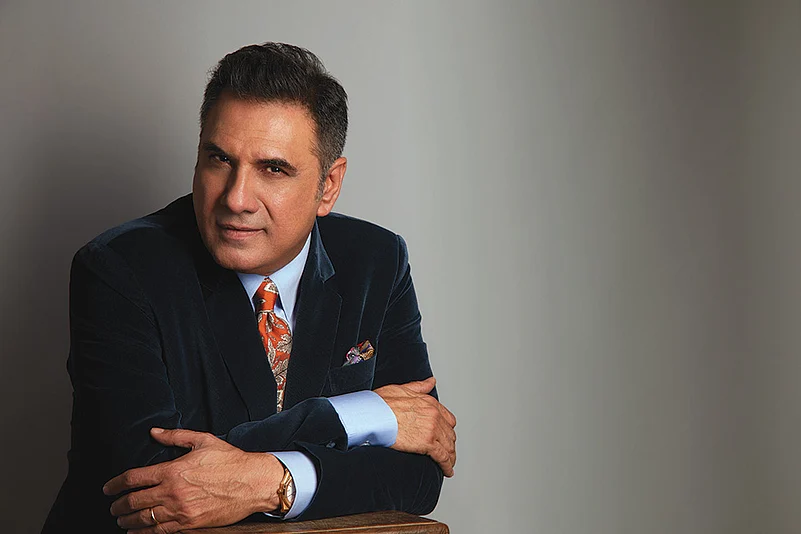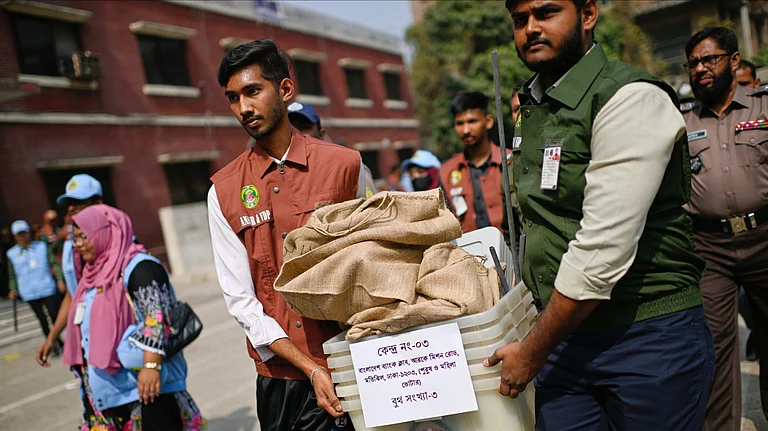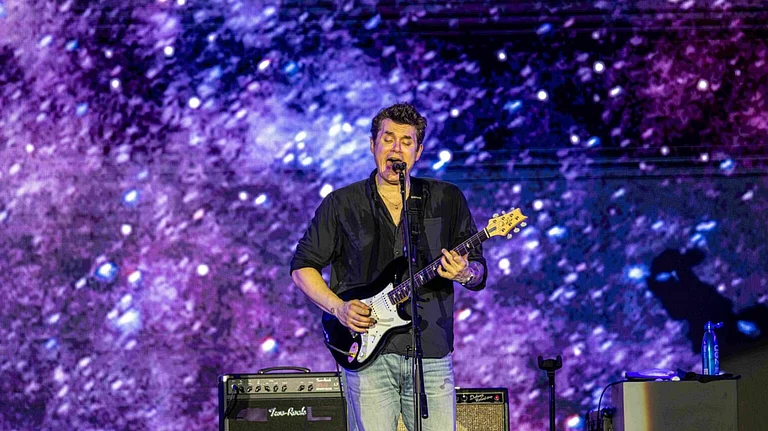Ahead of announcing his maiden movie as a writer-director under his newly floated banner, Irani Movietone, Boman Irani has been holding open online sessions with the screenwriters of all hues, brainstorming ideas with them on how to write a perfect script. The veteran actor, who will be seen next in Ranveer Singh’s ’83 and Jayesh Bhai Jordaar, talks to Giridhar Jha on a range of subjects, from the neglect of writers in the film industry to the multiple jobs he did before facing the camera. Excerpts of the interview:
You have been sharing ideas with the screenwriters on an open online platform under your Spiral Bound project. It is quite interesting, and also a constructive way to make use of the lockdown period. How did this idea come about?
It is actually a longer story than the lockdown. I have been toying with the idea of making a movie for quite some time. Whenever someone would tell me that I had a great idea and I should make a film on it, I would say that I would definitely direct a movie at some point of time. But for that, you need a script. It is as simple as that. You just cannot make a film without a script. I had a story idea and I looked around for some writers to work on it. But somehow what I got back in return was never satisfactory, so I decided to write it on my own. I went on to write a satisfactory story. I thought it was good, but something was lacking in it. Though every scene had a certain quality, I fund that the overall picture was not engaging enough. I realised that I needed to learn how to write it structurally. I went to the US looking for someone to help me and I met this young playwright named Alexander Dinelaris Jr. He also told me that the story did not have the structure. He told me that I needed to learn the architecture of it. I began to consider him as my guru. I kept going back to the US, sending pages of the script to him to seek his feedback and guidance. Two to three years passed by and my script started looking better and better. And then, he won an Oscar award for a film (Birdman/2014), which he had co-written. The film won many Academy awards and I thought I had lost my guru because he had become a big-time writer. But he became a closer friend after that. I learnt a lot during my seven-and-a-half-year journey with him. When I floated my production house (Irani Movietone) last year, I decided to organise a day-long workshop with the screenwriters instead of throwing a party or hosting a red carpet event. It was a huge success. That gave the idea of Spiral Bound. I wanted to do more and when the lockdown started, I started this online session with a small group of four people. Now, 85 people join it every day. So the idea of learning and sharing the knowledge that I had acquired through this writer and other workshops came from there. There is a big difference between a good story and a good screenplay. To make a good film out of a good story, you need a good screenplay.
What has been your takeaway from these screenwriting sessions?
The biggest takeaway has been that life for a lot of writers who seek and get feedback has become easier. When you write you are in a constant state of the writer’s block. You don't know what to write but when you apply the right technique it makes the process smooth. A lot of people advise to write freely without bothering about technique but I don't think so. During our sessions, we share our work, and break down screenplays. We learn the techniques and the artistry behind it.
Do you think Indian screenwriters need to learn more, compared to their Hollywood counterparts?
We have got wonderful extremely talented writers but what happens is that when people want to become writers, they are either working as assistant directors, cinematographers, directors or even actors. It is because you understand acting, cinematography, direction or the anatomy of a scene better through screenwriting. Spiral Bound has provided a good opportunity to the assistant directors to learn the craft of screenwriting, who may not have otherwise got any formal training in it.
But screenwriters are still not getting their due in terms of remuneration, billing etc in the film industry…
It is true from every angle. They have to work on a screenplay at times even without salary or any assurance that a movie will finally be made on it. Let alone financial security, nobody even understands the value of the screenwriters. In 1970, people used to go to watch a movie simply because it was written by Salim-Javed sahab. But a screenwriter hardly gets importance today in terms of money, assurances or billing. It has to change.
You have launched your production house now. What kind of movies would you like to produce under its banner?
I would like to make movies in any genre. I have no problem with films that entertain. I want all kinds of movies to be made. If they are made in a particular structure they become easier to shoot and chances of them being successful are greater. Meaningful films can be entertainers also. You have to make them in a proper way.
The lockdown has apparently put your plans to launch a movie on hold …
It has put the entire world on hold. I don’t have any regrets about it. Scores of people have lost their daily wages. That has to be fixed first. Our artistic ambitions will come later. What is more important is that people need to get back to work to feed their families. That is the first priority. Our artistic endeavour can resume later. I am being very honest about it.
You made your entry quite late into films at the outset of this millennium. Were you waiting for the end of of formula films in Bollywood?
I have had no problem with formula films as such. The public should be entertained, whichever way it wants to be. Yes, there has been a change in terms of content in Hindi cinema and films like Khosla ka Ghosla (2006) made a big impact despite being a small movie in its time. But I have been part of big blockbusters also. I feel they are also important because they entertain. There is no doubt about it but there has been change. Smaller films now have OTT platforms and there are opportunities to make low-budget movie which may not be risky for people to put their money in. Earlier, there were commercial films or alternate cinema. That has changed.
With the rise of content-rich cinema, is Bollywood heading for an era when star system will become obsolete?
I will say the star system actually brings the money. It is because star-driven films are successful that people get the courage to make smaller films. Without the big films, the whole industry will collapse. Make no mistake about it. We love our films stars and also love blockbusters because they are the source of entertainment for the masses. We cannot tell the common man to watch small films only. It is our duty to entertain them. If you are going to take away entertainment from a simple man’s everyday life, what is he going to do? He cannot do anything else for entertainment. In this country, everybody has two things to look forward to: one is cinema, another is cricket. We, therefore, have to supply them what has to be entertaining for him. It should not be stopped. We should also not forget that so many jobs are created because of them. Let us not get misled by that.
From a shopkeeper to a waiter to a photographer and more ... you have worn many hats before you became an actor. Which one you liked the most?
It is a very simple. When I do or show a film or a scene, I consider it to be my most favourite in the world. When I live a moment, I enjoy that moment to the hilt. When I was a waiter or a shopkeeper, I enjoyed doing that because that is what made me the person I am today. When I was in theatre, I enjoyed theatre and had the most happy experience, Every day you change and you have to grow. Right now whatever I am doing is my most happy experience. You cannot say who zamana accha tha (that era was better). I am enjoying whatever I am doing today and I will enjoy whatever I will do tomorrow. I cannot say this is what I liked the most.
Even while you were doing different jobs, you kept your passion for theatre alive…
Theatre has been my greatest education .. the discipline, the rehearsals, trying to do things in one go. Whether I have to face the camera or address a live audience, it has been part of my learning. I am so proud that I spent 14 years in theatre and will someday go back to theatre -- that is where it started. There is no doubt about that.
You life is an inspiring example of how it is never too late to start anything new …
I am 61, and will hopefully make my debut as a writer-director soon. I do not know who has set the time limit that you cannot make debut after certain age. I am a dadaji (grandfather) now and a dadaji making a debut cannot be a bad thing. I don’t want to see the face of the people who made rules that you have to retire at 60. I don’t adhere to such wrong rules.
Your character of Virus in 3 Idiots (2009) has been one of the iconic characters of Hindi cinema. How do you look back at it?
You will not believe me bit I don’t think too much of what has happened. Raat gayi baat gayi (what has happened has happened). I believe in looking forward and if I keep thinking how good I was in a particular role, I would get trapped. It is not for me to say or mention about it. There is so much more to do ahead. For me, Balraj Sahni ji was my most favourite actor of all times and I have to learn from such actors rather than be happy with what I have done. If I am stuck in such conversations, I would not be able to do things like Spiral Bound.
There has been a lot of insider-outsider debate in the film industry in the wake of Sushant Singh Rajput’s demise under unfortunate circumstances. What do you have to say about it?
If I say something it might get misrepresented today. I will only say that I am deeply saddened, disturbed and affected by Sushant’s parting – a young man. we lost him too soon.
A shorter, edited version of this appears in print


























